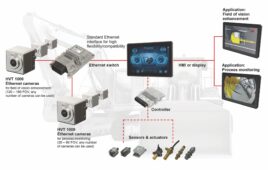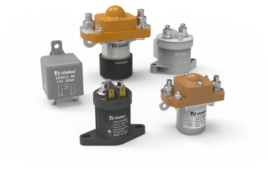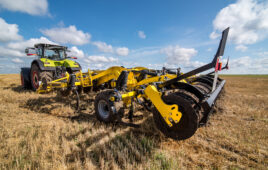PITTSBURGH, PA‚—Researchers at Carnegie Mellon University’s Robotics Institute are working with colleagues at Caterpillar Inc. to develop autonomous versions of large haul trucks used in mining operations.

The Robotics Institute will be adapting more than a decade’s worth of its research into self-driving vehicles for use with Caterpillar’s two largest haul trucks, each with payload capacities of 240 tons or more. This is the first major project resulting from a three-year master agreement for sponsored research signed last year by Carnegie Mellon and Caterpillar, the world’s leading manufacturer of construction, mining and other heavy equipment. Researchers at the Robotics Institute’s National Robotics Engineering Center (NREC) will work closely with Caterpillar’s Pittsburgh Automation Center, which opened in September 2007.
The driverless haul truck is part of an autonomous mining haulage system that Caterpillar recently announced it is developing with BHP Billiton Ltd., a leading global resources company. Plans call for autonomous trucks to be integrated into some BHP Billiton mine sites by 2010. The autonomous technology is designed to provide productivity gains through more consistency in processes. It is expected that autonomous mining will help minimize environmental impact by both improved efficiency and overall mine safety.
The Carnegie Mellon team will be adapting perception, planning and autonomous software architectures that it originally developed for the Defense Advanced Research Project Agency’s (DARPA) UGCV-PerceptOR (UPI) autonomous vehicle program and the DARPA Urban Challenge robot race. Caterpillar, based in Peoria, Ill., was a major sponsor of the Carnegie Mellon Tartan Racing team that won the $2 million Urban Challenge race in Victorville, Calif., last November.
Carnegie Mellon
www.cmu.edu
Caterpillar
www.cat.com
::Design World::
Filed Under: Off highway • construction • agriculture





Tell Us What You Think!